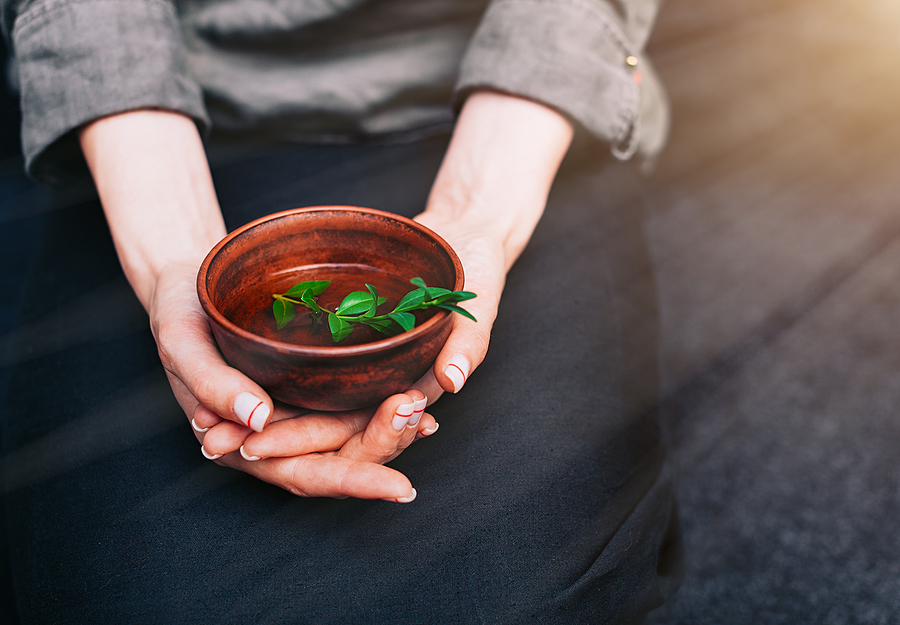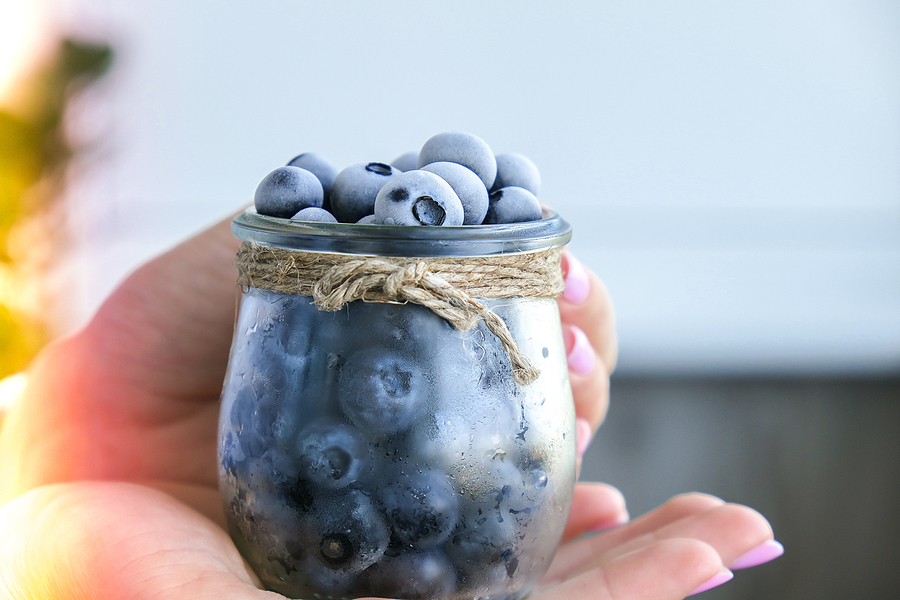Updated 09/12/2021
When a friend called me last month to ask if I wanted to meet for coffee I told her I’d love to see her, but suggested we skip the coffee and head for a local tea shop instead. That’s because I know how many health benefits tea has — including anti-aging properties!
Our culture puts so much emphasis on looking younger. But when I talk with my patients about aging, I stress that the way we look isn’t nearly as important as the way we feel!
I’m striving for a healthy balance in my life, and I want to feel great as I age. I want to continue participating in activities that keep me engaged and passionate.
Remember that old saying “you’re only as old as you feel?” I buy into that philosophy wholeheartedly. I know that it’s possible to live to be 90 years old and still be engaged in a life that we want. We don’t have to give in to the myth of old age as a burden to bear.
And here’s some good news: There’s something simple and inexpensive to help us move into our later years with good health. What? You guessed it…tea!
It was exciting as a practitioner when research began to show that tea has big benefits for health — including an impact on the aging process. And I’m not talking about a fancy, expensive variety — it’s the same tea you can find in the grocery store or health food market. There are so many fantastic types and flavors, at a reasonable price, that it’s easy for anyone to reap the benefits.
Do you drink tea? Have you ever considered what it’s doing for your health? Most people haven’t! Let’s take a closer look at this remarkable substance.
The Power of Tea—12 Amazing Ways That Tea Helps Keep You Young
Tea, known as Camellia sinensis, has been revered by many cultures for thousands of years, plenty of time to make note of its positive effects on health. In recent years, medical research has shown that drinking tea truly does help you live a longer, better life.
According to studies, different varieties of tea and the ingredients they contain have distinct effects at the cellular level that enhance health and slow down the natural aging process. As an added bonus, the ritual of drinking tea is also very helpful to calm the nervous system.
You might ask how something as simple as tea can have such important health benefits. The truth is that the list of molecules in various teas is lengthy, and their interactions with the body are quite complex.
Researchers have pinpointed a number of individual elements as responsible for tea’s wide-ranging health advantages, and now, a tremendous amount of new research is filling in the details.
Physical and emotional warmth
Drinking tea is refreshing, comforting, and relaxing, so a direct correlation between tea consumption and better health just enhances the benefits of this habit. New scientific inquiries continue to define the specific actions that tea has on our bodies and our longevity.
Let’s start with the effects that you can feel, because in some ways those are the most noticeable and immediate benefits.
While we’ve learned from experience that a nice, hot “cuppa” can help calm and relax us, research shows that black tea actually promotes faster recovery from stressful events at a physiological level. This effect is measured by stress hormones returning to normal levels faster, which may also result in significant downstream benefits, such as reduction of adrenal imbalance and risk of heart disease.
Studies throughout the past couple of decades have also shown that tea can have significant benefits on attention and mood. Simply put, that means you may be able to focus better, be more creative, and have more energy and an improved mood while doing so!
If you drink several daily cups of green tea—a common practice all across Asia—you may have less psychological stress overall. And studies on older people show that green tea can also reduce the prevalence of depressive symptoms and improve psychological well-being. Green tea has also been found to help with the liver’s detoxification abilities which become even more essential as we age.
Health effects you can measure—and weigh
As the prevalence of obesity and diabetes continues to increase, it’s a relief to know that tea can help with both conditions. While a study of instant tea showed it can help stabilize blood sugar, other research indicates another type of tea—oolong—helps control the blood sugar effect that carbohydrates have on people with type 2 diabetes.
Green tea contains some caffeine, like most teas, but it also contains phytochemicals with powerful antioxidant properties called catechins. Researchers think that both these substances can help increase your ability to lose abdominal fat while exercising and may even reduce triglyceride levels in people who don’t exercise at all! Most detoxification programs encourage the use of green tea on a daily basis.
Green tea is liver-friendly. It helps you metabolize fats, and may even stop the build-up of fatty deposits in the liver. But I think the most interesting and youth-preserving effect is how green tea can improve your body’s all-important ability to detoxify.
The catechins found most abundantly in green tea (but also present in black, oolong, and white teas) increase levels of key protective enzymes. The protective effects of catechins continue to be studied, but to date these enzymes have been found to help balance the two stages of liver detox (phase I and phase II), reduce toxic effects of reactive intermediate substances created during the detoxification process, and neutralize certain cancer-causing molecules.
A teakettle-full of immune support
With the current state of the world and attention to healthy immune systems, anything that can fight off germs is worth a mention. While we all avoid infection from bacteria or viruses as much as we can, we can’t avoid germs entirely.
When I’m achy or have a scratchy throat, I find a soothing cup of hot tea hits the spot. And now there is scientific proof that this benefit transcends the psychological. Green tea can actually reduce cold and flu symptoms and get you back on your feet faster. In fact, people who drink green tea just seem to get fewer colds overall.
The tea plant contains ingredients that work individually to help you fight germs and bugs, like L-theanine, which is thought to activate the infection-fighting T-cells in your immune system. Theanine is found most abundantly in fine green teas that are shade-grown, but again, in all types of true tea. Theanine is also helpful as a support for the neurotransmitters.
Other tea ingredients have effects that are anti-inflammatory and antiviral—polyphenols or catechins, such as epigallocatechin gallate (EGCG). In theory, the ability to suppress inflammation may translate into less autoimmune activity in cells exposed to EGCG, accounting for lower incidence of autoimmune diseases, such as dry mouth (xerostoma) and rheumatoid arthritis in populations that adore green tea.
When taken with antibiotics, green tea has been found to effectively supercharge them and help knock out “superbugs” and bacterial strains previously resistant to treatment. White tea can also protect against bacterial infections.
Tea can shrink your risk of chronic disease
In Japan, where even the preparation of tea is an ancient and beloved ritual, green tea is a household staple. Several studies there that focus on its health effects offer encouraging results: along with helping prevent cells from becoming cancerous, green tea may also help prevent recurrence of the disease in cancer patients.
Emerging research around the globe points to the power that green and black teas may have to prevent gastric cancer, and cancers of the blood, breast, ovaries, colon, mouth, and prostate.
Drinking tea regularly may help ease another common fear many of us have about aging: loss of cognitive function. Research shows that both black and green teas protect against Alzheimer’s disease (AD), and guard against the memory loss that is a telltale hallmark of AD.
In the prevention and treatment of Parkinson’s disease (PD), a degenerative disorder of the central nervous system, black and green teas both have value. Some research has shown that black tea decreases risk of getting PD by a staggering 71%, while green tea is able to slow down the progression of this devastating disease. The research is still not quite clear on the exact mechanism for the action.
Tea for the heart: more than an ounce of prevention
If you’ve followed recent health trends, you know that the greatest overall threat to women’s longevity is cardiovascular disease. After menopause women’s risk of heart disease is nearly the same as that of men.
We’ve learned a lot about how diet and lifestyle can contribute to this degenerative condition, and now we’re starting to pinpoint effective ways to help prevent it. Tea fits right into a healthy lifestyle focused on avoiding cardiovascular disease.
For people who drink lots of green tea, such as the Japanese, there is a measurable reduction in the risk of death from heart disease. The polyphenols in green tea have the ability to facilitate blood flow through the vessels, and this circulatory effect can actually reduce the incidence of cardiovascular disease as well as the risk of dying from it.
Stronger bones for longer life
Natural bone health also enhances a woman’s health span as the years advance. Once again, it’s tea to the rescue! Tea has well-documented, bone-conserving benefits. For starters, drinking tea is linked to higher bone mineral density (BMD), a reduction in hip fractures, and preservation of the hip structure in general. And tea helps protect against bone loss even after menopause.
Bone tissue is intended to naturally break down and build back up throughout your life. Green tea can perform double duties in this process because it helps stimulate mineralization to generate bone formation, while simultaneously inhibiting the formation of osteoclasts, the cells that remove bone tissue.
Can tea make you younger?
Aging gracefully, and the factors that influence our ability to do so, is the subject of much recent, cutting-edge science. Of course tea is no “fountain of youth,” but it might make a difference in the rate at which you age. Several studies show that black tea, and especially green tea, can help protect your DNA’s telomeres.
Telomeres cap the ends of your chromosomes, protecting the genetic information they contain, and by preserving them from fraying, ingredients found in tea can, in essence, help you stay “younger” than your chronological years.
Additional studies show that tea can support healthy aging by promoting eye health and oral health. Specifically, tea has been associated with the preservation of retinal function in glaucoma and ischemia and protects against gum disease.
Breathe easier with tea
Can tea help reduce lung damage caused by cigarette smoke? The research suggests that it can! Green tea has been shown to limit cigarette smoke-related damage.
Research on black tea has demonstrated a preventative effect against oxidative damage (from free radicals), inflammation, and cell death associated with exposure to cigarette smoke. Other research has shown that tea may reduce the risk of lung cancer. Those are some good reasons to sip a cup of tea and take a deep breath – perhaps more easily!
Tea’s effects on arthritis
It used to be thought that arthritis was an inevitable fact of life for us as we grew older, but there is a lot more to the equation, including a strong inflammatory component. Studies suggest that green tea polyphenols can inhibit the inflammatory response and development of arthritis in animal models.
Other research demonstrates that tea consumption can protect against autoimmune arthritis, delay the onset of rheumatoid arthritis, and reduce joint damage and inflammation in those who already have it.
Invite tea into your lifestyle
The body of scientific evidence proving the health advantages of tea continues to blossom more each year. As a practitioner, I think it’s been fun to watch this familiar, everyday drink—enjoyed for thousands of years and revered as an elixir of longevity—morph into the latest medical marvel. But it makes perfect sense!
When we look at the cultures where tea drinking has been most embedded throughout human history, the distinct health benefits of tea are apparent.
Remember that friend I invited to try tea instead of coffee? She agreed, and while we were there I shared the benefits of tea with her. She decided to swap out her morning coffee for tea for a couple of weeks and see how it went.
Although she’d been afraid she’d miss her caffeine boost, she found that a cup or two of black tea did the trick; she even noticed that she wasn’t nearly as jumpy at work. She was having great fun sampling a variety of flavors, drinking it hot or iced. She loved the versatility, and she loved the way it made her feel. Tea has become her new daily ritual.
You can do the same for yourself. Peruse the many varieties of tea available, choose one that appeals to you, then sit back and enjoy some quiet reflection as you sip your way to natural balance. Tea is a preventative lifestyle habit that just may keep you as young physically as you feel mentally!








